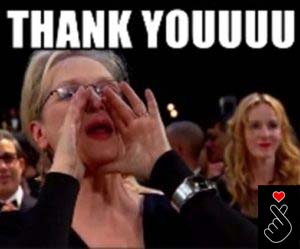A job interview tends to be one of the most difficult experiences for job seekers. During the interview, they must convince the recruiters that they are eligible to join and work for the company. Of course, they can only increase your chances of getting hired through a job interview.
That’s why you have to make the most of a job interview, since the chances do not come twice. If you happen to be having a job interview and may be confused about how to face it, you shouldn’t worry, as this post will show you some psychological tips to help you pass a job interview successfully.
Psychological tips here allow you to understand how the human mind works and reacts to words and actions, as well as you will be able to make a good impression on recruiters. We found these psychological tips from some internet sources, e.g., kampuspsikologi.com. Okay, let’s dive into our post to find these psychological tips!
1) Develop Your Attractiveness
Reportedly, the hiring manager interviews eight people for each shift. Of course, the number is high enough that they commonly need to look again at their records to remember candidates. The exception is candidates with strong attractiveness.
However, it is no more than 15-20 seconds about you, your background, or even your goals that answer the question of why they should hire you. What you should do is to offer a story or narrative that shows that you are a strong candidate, leading you to climb to the top of the candidate list.
We take an example, if you have a question just like “Tell me about why you are looking for a new job?”
You definitely can answer like “I’m an accountant with five-years of experience at fast-growing SAAS companies. I also have a passion for building accounting processes at a ground-level before the companies really start to grow. I would like to move to an early stage company where I can leverage my skills and interests, and believe this opportunity will be a great fit”.
2) Figure Out About the Company You Apply For
During a job interview, you are interviewing to convey a lack of preparation and interest, no matter how prepared you are to tell a story about yourself, not knowing the essentials of the company. Until you really know the company, you cannot show a recruiter how you will fit in the company.
Today, every company either produces content or promotes their content via third-parties such as Business Insider, Techcrunch, etc. Of course, you can take advantage of social media platforms to delve deeply into the official company website or LinkedIn, so you can see how they position themselves to their clients.
By doing these steps, you can really know who the leaders of the company are, their near-term strategic objectives and their revenue model. What you should do is to pick something which grabs your interest and ask your interviewer about it.
3) Briefcase Technique
In a job interview, this is an excellent technique that will really set you apart from your competitors. In short, you come to a job interview with a written proposal outlining what you believe the company’s pressing problems are and how you’re going to solve them. You shouldn’t worry if it is not perfect, it is an effort and discussion you want to foster.
4) Learn a Job Position You Apply for
Before it is time for a job interview, it would be better for you to get to know the job you are applying for more deeply. It is not enough for you if you only read job descriptions. Well, doing research for every task is a must for you. During an interview, you may need to arrange your responses, so that you can reveal your significant knowledge about the job that will give you a big advantage.
5) Find Out the Company Culture and Position Yourself as an Eligible Person
It’s highly recommended for you to figure out the company and find out what founding/ leading team emphasizes whether or not they value ideas, numbers or also designs. After knowing these, you can then position yourself for the position greatly.
You may also need to figure out what makes you special, i.e., you could be an idea machine or a statistic fanatic. Of course, you must be prepared to adapt it to your response, whatever they stress in a job interview, e.g., when the interviewer asks, “What are your strengths?”, you should jump right into your unique qualities for the job. Make sure to explain that you’re the right person.
6) Prepare the Story Behind Every Answer
Even though you have to describe the key points that you will answer if you’re asked these questions, you definitely need to be prepared for the interview to ask follow-up questions i.e., “What does this power look like in action?”.
To answer this question, you may need to prepare a story which really shows your work or power in action. Keep it simple, fun and high-level, as well as making sure you have a fun side to convey your influence.
Basically, humans relate to stories which are often more memorable than simply recording facts. Many are sure that this strategy will leave an indelible impression long after your interview.
7) Practice More and More
Basically, you and other candidates already know the many questions you will be asking for a job interview. The difference is in the preparation. To give you a competitive edge over others, you can prepare responses which are unique and specific to a particular position.
You do not have to memorize answers, instead you should know certain reference points about yourself which can be applied to different questions. If necessary, you need to critique the interview yourself. What you should do is to record your responses until you can speak flexibly and comfortably as a challenge to assess your answers about the topic you prepared and also shoot a video of yourself to prevent nervousness in a real job interview.
8) Project a Relaxed, Calm and Positive Style
If you show a relaxed and calm demeanor, the recruiters may feel more comfortable with you as a potential colleague. Don’t show your weakness during an interview that can trigger fear or anxiety. If you are nervous during a job interview, you can take a deep breath and do your best to stay calm and relaxed.
Smiling when starting a job interview is a must, since many researches have proven that smiling not only increases your happiness and self-confidence, but it also makes the people you interact with feel comfortable.
Why does it happen? It is largely due to neurons in the brain that naturally mimic other people’s expressions and emotions. Of course, doing it will require emotional intelligence (EQ), a skill that employers are increasingly seeking.
9) Be Authentic
Generally, a good interviewer will have a way of getting to the main of who you are. Reportedly, Human Development Resources commonly have an innate sense to read people or they may be very good at asking the right questions, regardless of the importance of an interview.
If you are not authentic, you may not get the job when the interviewers know all about you or you will end up in the wrong job. You shouldn’t focus on what you think the interviewer wants to hear, instead you need to focus on providing an honest and passionate description of what you need to offer.
10) Use ‘Power-Priming Tactics’
This technique tends to allow you to think of times in your life when you felt successful and empowered. However, it can really increase your confidence and increase your opportunities of getting hired.
11) Use Your Interviewer’s Name
Generally, people are happy if other people recognize their name. During a job interview, of course, you can use your interviewer’s name, but let it go a few times.
12) Practice ‘Reflective Listening’
Reflective listening means you can repeat the interview’s statement or question in your own words. If you do this technique, you can really have the ability to understand instructions. Of course, these abilities will benefit you to be successfully hired.
13) Keep Your Hand Warm
During a job interview, you should avoid showing nervousness by keeping your hand warm and dry. It can really create positive circumstances through a warm handshake.
14) Be Mindful of Your Body Language
It would be better for you to use positive nonverbal behaviour when you are facing a job interview. Make sure to maintain eye contact and nod to show your approval and understanding. You can also use subtle hand movements when speaking and change the pitch of your voice.
15) Consider Construal Level Theory
According to the Construal Level Theory, the further away you’re from an object or person, the more abstract your thoughts will be. And, the closer you’re, the more cocreate your thoughts will be. Through this, you can really know what you are most likely to talk about. Well, the closer you’re to the interviewer, the more likely you’re to succeed.
16) Don’t Interrupt
During a job interview, you never interrupt the interviewer even if you know what the recruiters are going to say.
Okay, those are some psychological tips for job seekers to help them in a job interview.
In-Depth Psychological Tricks for a Job Interview
In-depth psychological tricks for a job interview refer to the same way as a salesperson does for selling a product. Interview is a perfect chance for you to sell yourself to the company, in terms of your abilities so that you are worthy of employment.
Instead of seeing an interview as a challenge, it may be better for you to take advantage of numerous tips and tricks that salespeople have done over the years to increase your chance of getting a job.
Neuro Linguisting Programming or NLP that was created by Richard Bandler and John Grinder in the 1970s, has turned the sales process into an art form. There are a number of tips and tricks you can adapt to make your interview a success, here are they:
-
- Establish rapport
- Establish a need
- Pitch to the need
- Overcome objections
Well, you can really use the exact same model, just slightly adapted for your interviewers:
-
- Establish rapport: Make sure to be friendly and approachable with your interviewer and present yourself as someone they’d like to work with.
- Establish a need: Listen to role requirements in detail and ask questions if necessary.
- Pitch to the need: Ensure to tell the interviewer how you were able to do the job, using real-life examples from your experience as evidence.
- Overcome objections: If there are question marks about your abilities, make sure to listen and describe clearly how you can overcome them and give examples.
To make it easier for you to use some specific psychological tricks for a job interview to help you achieve your goals, we will show you six of the best psychological techniques you can use for a job interview. We found these psychological techniques to prepare your job interview from coburgbanks.co.uk. Here are they:
1) Speak in their language
You will discover something important if you listen to your interview’s speech patterns. Basically, humans think in either visual (seeing), auditory (hearing) or kinesthetic (feeling) speech patterns. Well, they shape the kind of language they use depending on what kind of person.
Sounds like scientific mumbo-jumbo? So, if someone has ever seen eye-to-eye, struck a chord or touched a nerve with you, then you have already been exposed to this probably without already knowing.
It is known that everyone has their preferred way of speaking and thinking, so if you can, you should identify the interview’s main speech pattern. If you can, you should try and emulate it as well. Of course, it will go a long way for building rapport and making the interviewer feel like you are connecting.
2) Physical Mirroring
Physical Mirroring is a risk that you shouldn’t reveal for the first time in a job interview. If you are nervous, it may seem awkward and forced. At its worst, you may come across as mocking them, but if you do it, you will then be well on your way to building rapport. If you are trying to practice any of these techniques, you can try them on a friend first, so you can be confident.
Never imitate the interviewer and never treat the situation like a candlelight dinner. What you should do is to take visual cues from the way they sit, their posture and reflect back on them. You can do the same if they are reclining in their chair. If they also lean forward and look you in the eye, you can move towards them gently.
If the interviewer views himself in you, you can once again raise your sense of rapport and strengthen the bond of that relationship. What you should do is to take this one as far as you want, first by setting their movement speed, following them and you can then take the lead.
However, you should be careful to only reflect the positive aspects of the interviewer and avoid reflecting if the interviewer is gloomy. After you feel the interview has relaxed and you are in tune, you can try your own movements, a change in posture or a gentle cough. If the interviewer follows you then you are in tune, the interview went well. So, make sure you do not force it or it will look unnatural.
3) Ask questions to define key needs
You can really sell yourself to do your best according to the job description. It makes sense and that’s all you can do with the information you want. However, it means that you need more information, since you may find that the force which drives this interviewer. Well, the main thing that can influence his decision and decide whether you are eligible or not has nothing to do with the job description.
For example, the company may be looking for someone who fits perfectly into the company culture, regarding your technical skills and abilities, so you need to show that in the interview. You can only do that, if you know that’s what they’re looking for, which in turn requires questions from you.
You should be careful how you ask questions, make sure the interviewer doesn’t think you’re trying to take over. The safe introduction is always: “Do you mind if I ask…”. By asking this kind of question about your last job, company, and employee (who, how, why, what, where, and when) and listening carefully to the answers, you can really discover the forces that move the interviewer.
Of course, the interviewers will tell you that they are looking for a dynamic team player, or a hard worker who is self-motivated. Things you basically can’t get from a job ad. Knowing that means you don’t have to guess. Then it’s up to you to tailor your skills to meet specific needs, rather than general job requirements.
4) Use emotional language
Everything from brush commercials to mortgage apps have been infused with sales language. The language here refers to an emotional term that has been researched to death to make sure it hits the right buttons and evokes the perfect emotional response.
The emotive terms are known as the ‘power of words’. You can really use it to your advantage but you should be careful, never overdo it or you will look like a weirdo. However, you need to choose the right words and you can paint a picture of positivity, success and drive. Well, it will always help in a job interview situation.
According to coburgbanks.co.uk, the good words you can use include: ‘trust’, ‘energy’, ‘instant’, ‘change’, ‘sharp’, ‘healthy’, ‘growing’, ‘refreshing’, ‘overcoming’, ‘success’, and ‘ happy’.
5) Overcome Objections
This technique directly comes from the sales guide and takes courage. However, if you can encourage interviewers to voice concerns, they may have and you are 50% over them. Certainly, most interviewers may address their own shortcomings during the interview, but they may not mention the nagging doubts which will actually cost you your job unless you ask.
Generally, the interviewer will ask if you have any questions at the end of the interview, regarding the job or position you are applying for. It would be better for you to prepare some questions to ask them to really impress them. If not, at least you may need to ask a question like “Do you have any doubts about me and do you think I am right for the role?”
If there are any concerns about your particular skill set and if they think you would be a good fit for the company, you may need to ask them and be prepared to deal with the shortfall. Of course, there are some skills needed for the job you have, but for whatever reason you have not been covered enough for the interview. Of course, this is the ideal chance for you to put their minds at ease.
As an alternative way, there may be a noticeable gap, in which case you can suggest internal training to show your willingness to learn and also highlight the skills you have, which can offset some of the missing skills and restore balance to yourself. Either way, you have a better chance of getting a job if you recognize and work on flaws, rather than never addressing them.
6) The Close
In the sales term, you have probably heard the term ‘closing’, but you have not ever tried it in a job interview situation, right? Closing is the last part of the interview in which you have to know where you stand.
Of course, it can be related to the overcoming flaws section, particularly to questions about flaws that they might have about you, but this is a little more than that.
With the close, you may be able to try to build what happens next, when you can expect to hear from them and also if there is anything else they need from you in the meantime. So, ensure to ask those questions and you will sound professional and you can impress the interviewer.
Conclusion
Well, those are six psychological tricks that can help you in a job interview and make you stand out from the rest. If you can, you may need to practice with a friend before attempting this technique in a real-life interview situation.
The most important part during a job interview is to stay calm and confident, as well as listening effectively and fully demonstrating why you will be the right person for the job.
Good Luck!!!

A bookworm and researcher especially related to law and citizenship education. I spend time every day in front of the internet and the campus library.





